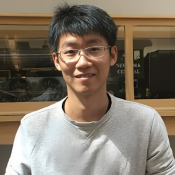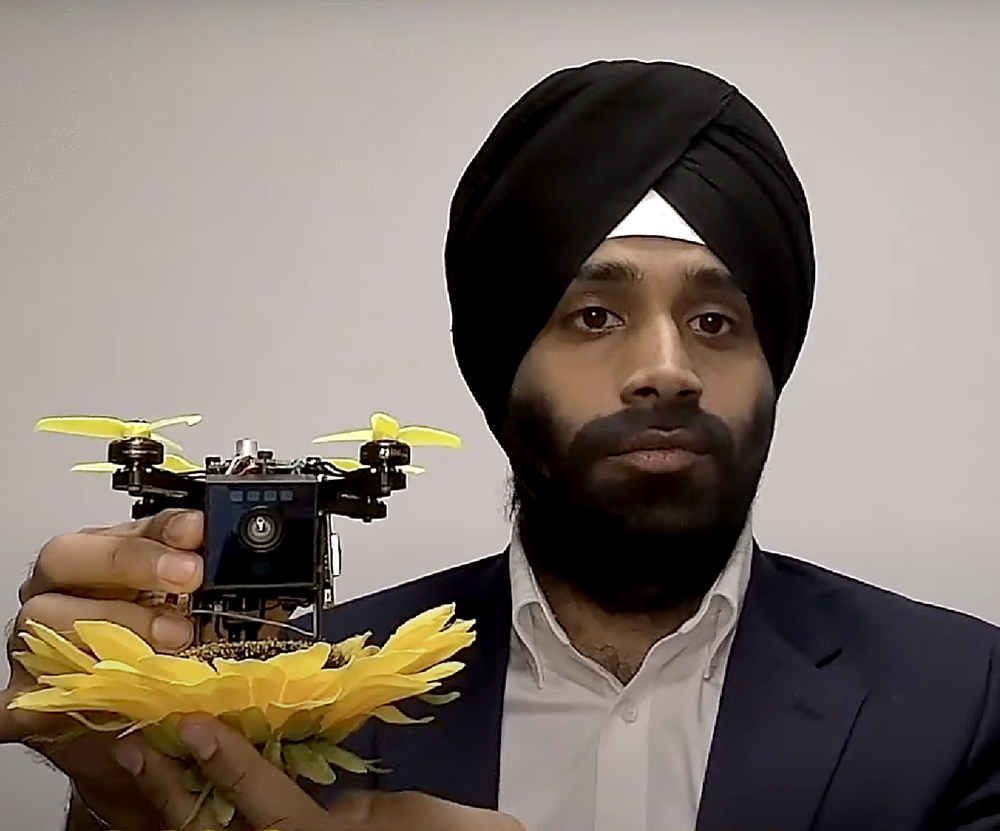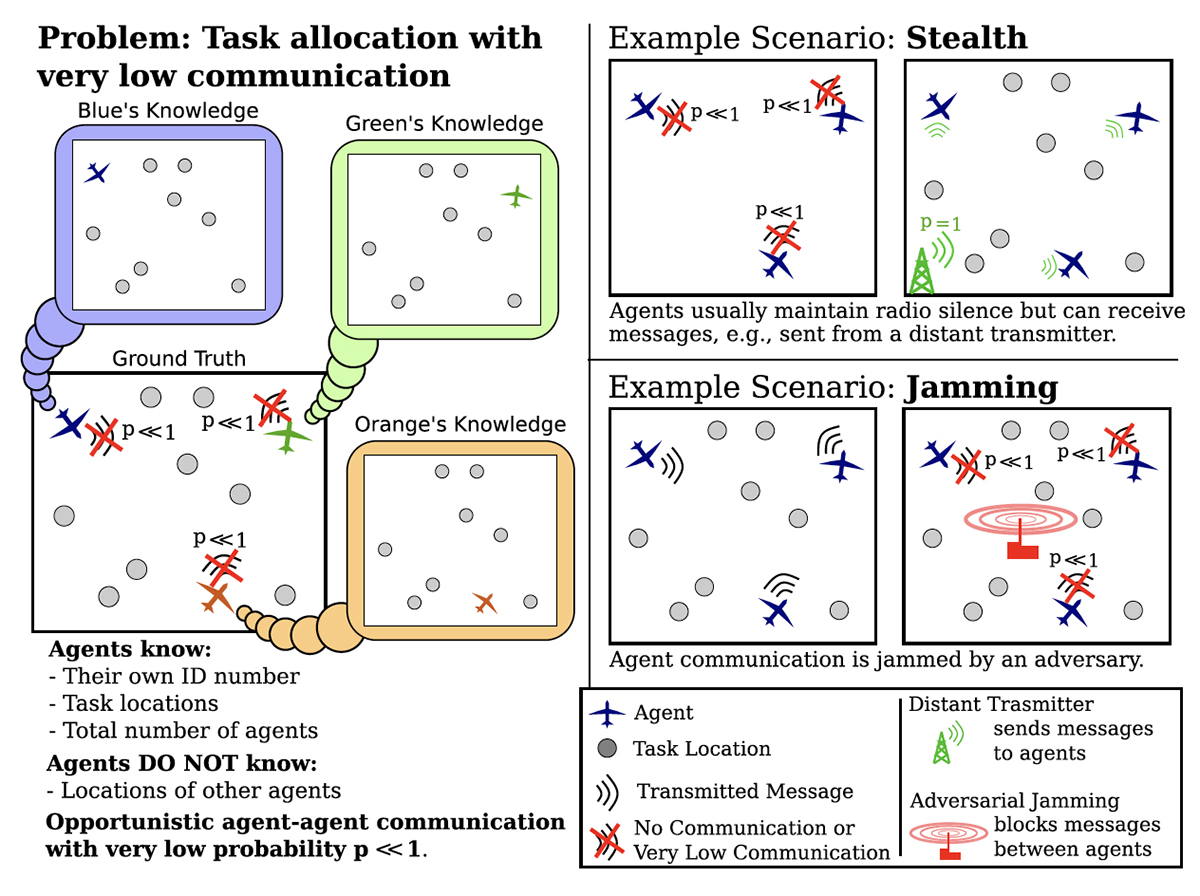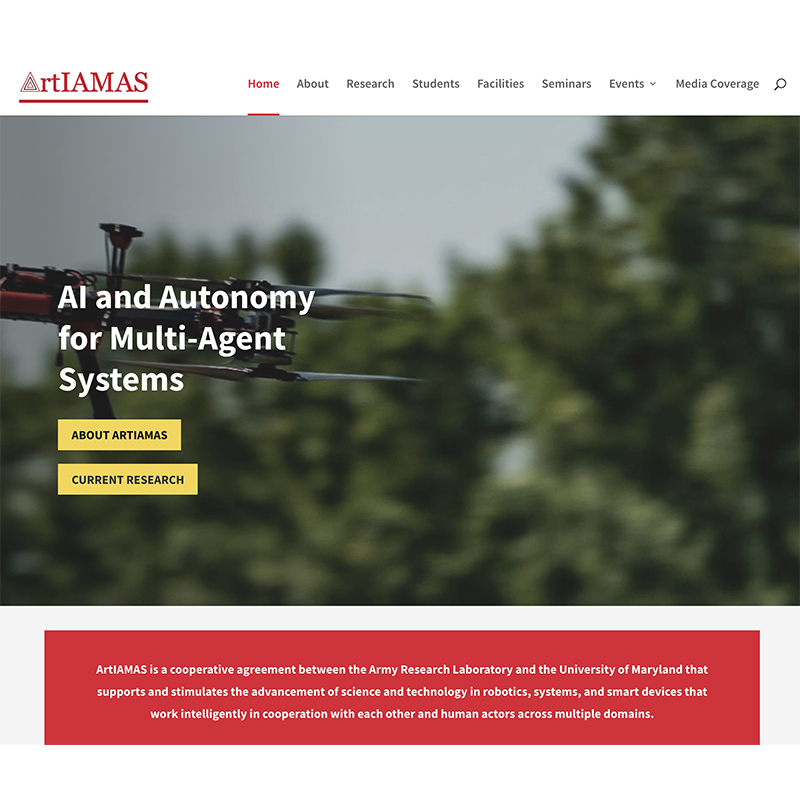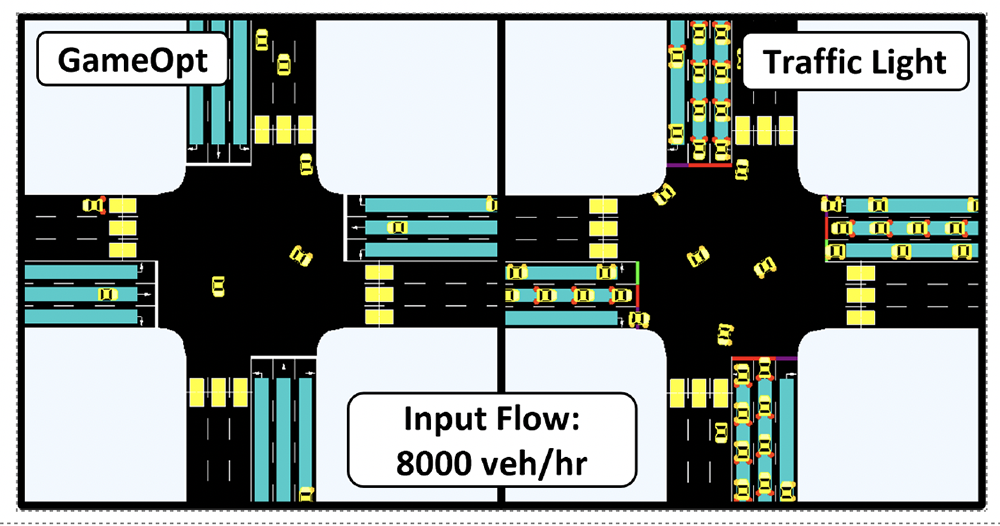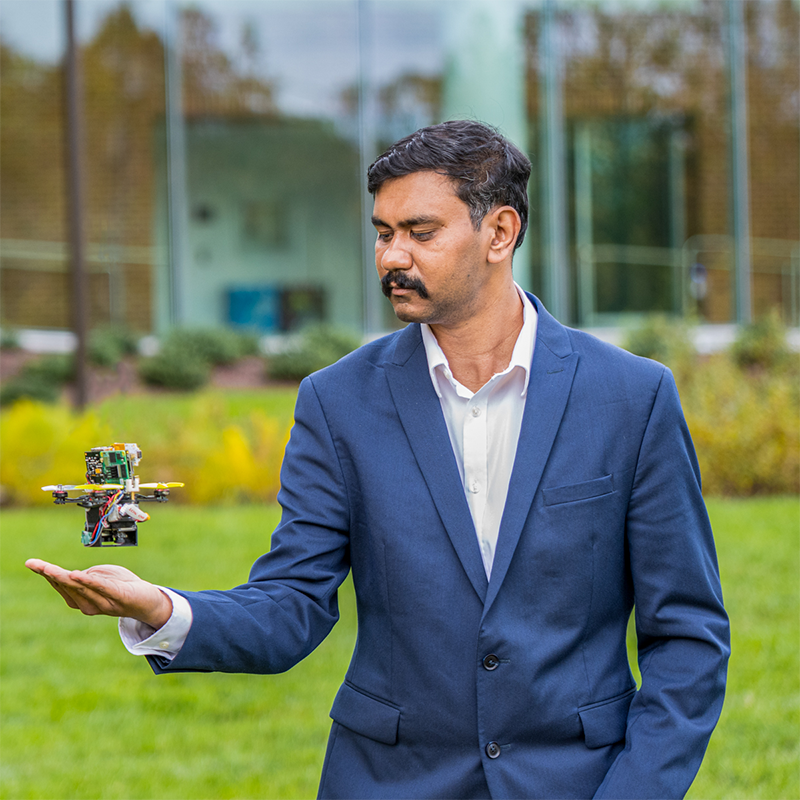News Story
UMD Team Wins IEEE IROS Best Paper Award in Agri-Robotics
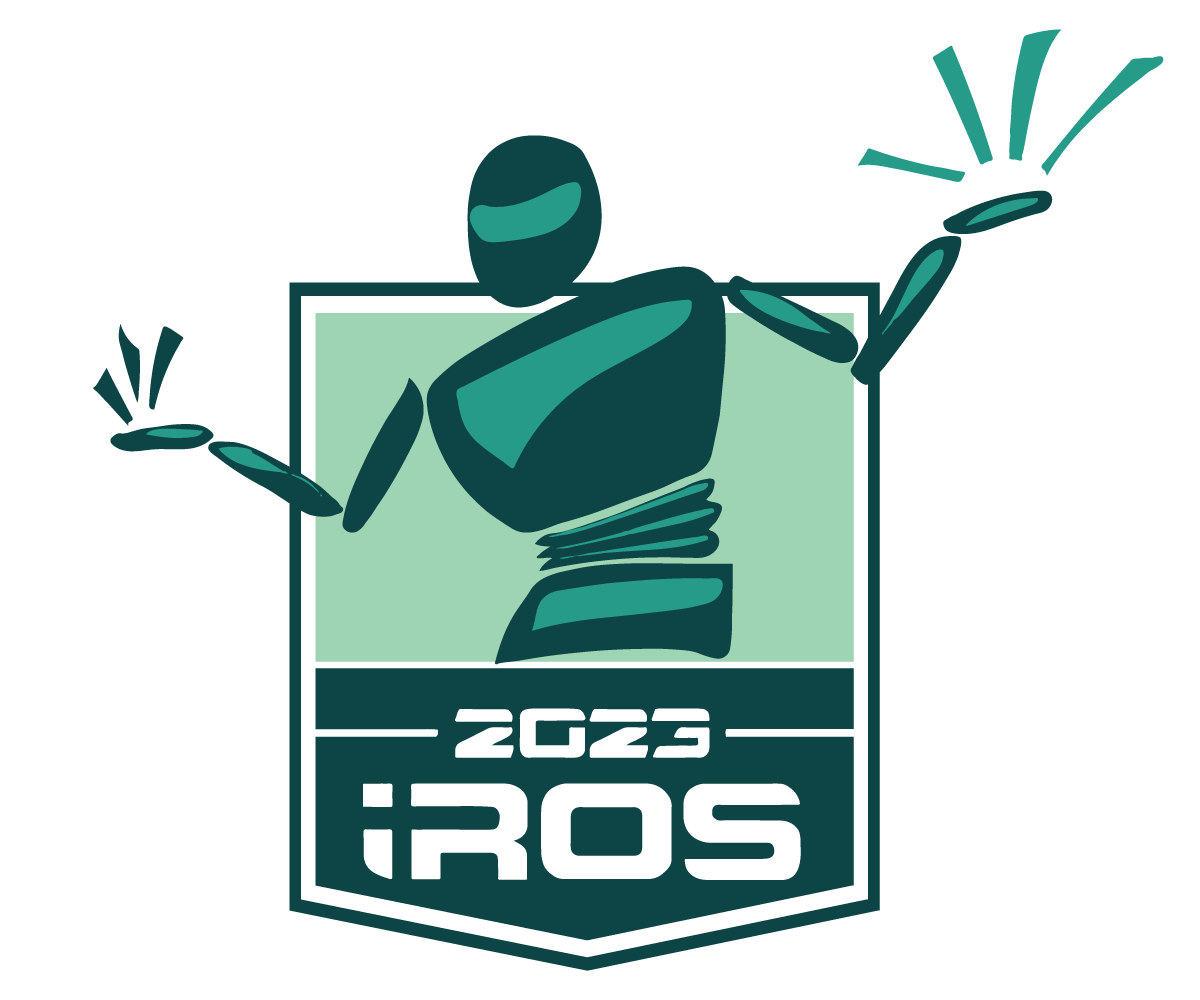
Peng Gao, formerly a postdoctoral fellow at the University of Maryland and now at the University of Massachusetts Amherst, received a Best Paper Award in the Agri-Robotics category at the 2023 IEEE/RSJ International Conference on Intelligent Robots and Systems (IROS), held in Detroit, Michigan, from October 1 to 5, 2023. His paper, titled "Visual, Spatial, Geometric-Preserved Place Recognition for Cross-View and Cross-Modal Collaborative Perception," stood out among 1,700 accepted papers, highlighting its innovative advancements in robotics.
In addition to Gao, collaborators on the research included Distinguished University Professor Ming Lin and computer science Ph.D. students Jing Liang, Yu Shen and Sanghyun Son—all members of UMD's GAMMA research group.
The award, which included a certificate and a $1,000 prize, recognizes Gao's contribution to advancing robotic systems in agriculture. His paper addresses critical challenges in multi-robot collaborative perception, a key component in applications such as aerial-ground search and rescue operations.
"I am very excited to be recognized with this award and am grateful to my advisor, Ming Lin, and my collaborators," Gao said. "Our work aims to address key challenges in multi-robot collaborative perception, which include cross-modal challenges arising from robots with different sensing modalities and cross-view challenges present in multi-robot observations acquired from completely different perspectives. It has numerous applications, encompassing multi-robot collaborative search and rescue, tracking, reasoning, connected autonomous driving, and even human-robot visual reference for enhanced interaction and collaboration."
The research work focuses on improving place recognition in multi-robot systems, a critical aspect for identifying the same locations visited by various robots. Conventional approaches frequently encounter challenges in this area, particularly when robots have non-overlapping views or perceive their surroundings differently. Gao's innovative method combines visual, spatial and geometric data, enabling more reliable place recognition by robots.
Gao's work represents a considerable advancement in robotics. It allows robots to perceive and interpret their environment similarly to humans. This technique involves creating a 'map' or 'graph' that aids robots in identifying and recalling locations despite variations in their observations. For example, it empowers ground-level and aerial robots to recognize that they are observing the same location despite their distinct perspectives.
This approach represents a notable improvement over previous methods. In testing, it demonstrated a 10% better performance in ground-based robot recognition and a 35% improvement in aerial-ground recognition compared to earlier techniques. These numbers indicate a significant step toward enhancing robotic systems' efficiency and reliability, particularly in complex environments like farms or disaster zones.
Lin, a faculty member at the Maryland Robotics Center and Center on Machine Learning and an affiliate faculty with the Department of Electrical and Computer Engineering and an Amazon Scholar, expressed confidence in the potential of the research.
"It is a great honor to see our collaborative efforts, led by Peng Gao, recognized with a Best Papers award at IEEE IROS 2023," said Lin, Dr. Barry Mersky and Capital One Endowed Professor of Computer Science. "For decades, IROS has been one of the world’s largest and leading international conferences on robotics and intelligent systems. This work is a wonderful fusion of innovative ideas from our recent works on collaborative robotics and multi-modality learning."
In addition to the Best Paper award in Agri-Robotics, the GAMMA research group also secured a Best Workshop Paper award for their work, “iPLAN: Intent-Aware Planning in Heterogeneous Traffic via Distributed Multi-Agent Reinforcement Learning.”
Established in 1988 and held yearly, IROS offers an international stage for the robotics research community to delve into the cutting-edge of science and technology in intelligent robots and smart machines. It emphasizes forward-looking directions, innovative approaches, designs and outcomes in the field.
The research projects were supported in part by the Maryland Robotics Center Postdoctoral Fellowship, Army Research Lab-UMD Cooperate Agreement, Army Research Office DURIP Grant, Dr. Barry Mersky E-Novate Professorship, Capital One E-Novate Professorship and Paul Chrisman Iribe E-Nnovate Professorship.
Story by Samuel Malede Zewdu, CS Communications
Comments, suggestions and corrections are welcomde. Send email to editor@cs.umd.edu.
Published November 28, 2023
